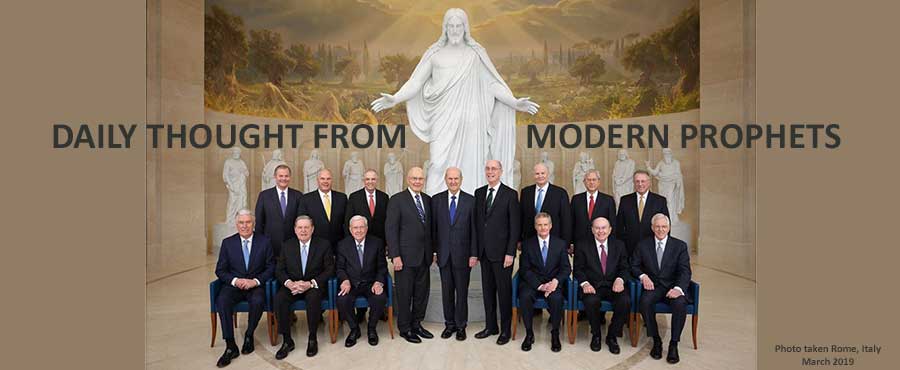"For many years Sister Bednar and I hosted faithful men and women as devotional speakers at Brigham Young University-Idaho. Many of these speakers were emeritus or released members of the Seventy who had served as temple presidents following their service as General Authorities. As we talked with these stalwart leaders, I always asked this question: 'What have you learned as a temple president that you wish you had better understood when you were a General Authority?'
"As I listened to their answers, I discovered a consistent theme that I would summarize as follows: 'I have come to understand better the protection available through our temple covenants and what it means to make an acceptable offering of temple worship. There is a difference between church-attending, tithe-paying members who occasionally rush into the temple to go through a session and those members who faithfully and consistently worship in the temple.'
"The similarity of their answers impressed me greatly. Each response to my question focused upon the protecting power of the ordinances and covenants available in the house of the Lord....
"We should not be surprised by Satan's efforts to thwart or discredit temple worship and work. The devil despises the purity in and the power of the Lord's house. And the protection available to each of us in and through temple ordinances and covenants stands as a great obstacle to the evil designs of Lucifer."
- David A. Bednar, "Honorably Hold a Name and Standing", Ensign, May 2009, pp. 97-100
Click here to read the full article
The reason for our actions is often more important than the action itself. Why do we do the things we do? Out of a sense of obligation, concern for appearances, or simple habit? Or because of love of God, love of neighbor, purity of heart, sincere desire to serve or grow?
Elder Bednar teaches us about "an acceptable offering of temple worship" by implying that the frequency of temple attendance (occasional vs. consistent) and the attitude in attending (rushed vs. worshipful) are evidences of the motivation, and certainly correlate to the benefits derived from attending:
Given the promised blessings and the benefits that come from properly-motivated temple worship and service, it's not surprising there is opposition from the adversary:
We should strive for the protection and blessings that are promised to those who "faithfully and consistently worship in the temple."




































